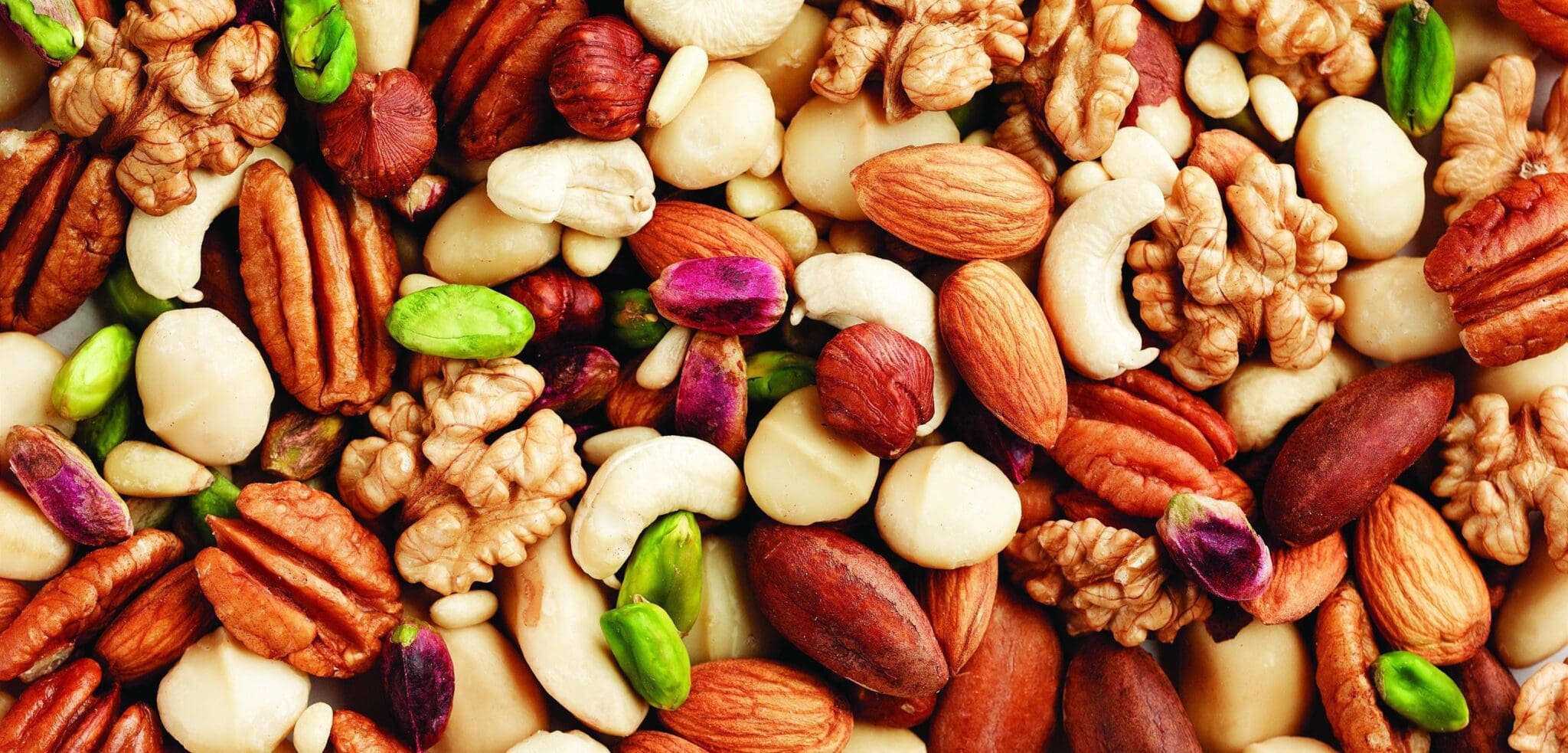
Soaking (Sprouting) Nuts and Seeds for Better Health
Often times people notice that raw nuts tend to bother their stomach, and many are therefore forced to avoid them altogether. According to research, nuts and seeds should be prepared in a way that makes them much easier to digest and the nutrients more absorbable. Consuming properly prepare nuts and seeds are a wonderful way of cleanse the colon, sweeping away toxins, and paving the way for better nutrient absorption.
When people are introduced to the concept of traditionally preparing nuts and seeds, many find they are able to now handle them very well and also find the nuts have a much better texture and flavor. Native cultures for example, the Aztecs, used this method to soak pumpkin and squash seeds in sea water and then dry them in the sun.
Nuts and seeds have high amounts of phytic acid, tannin, and enzyme inhibitors which have a beneficial and protective purpose for nuts, seeds, legumes and grains, preventing them from sprouting prematurely before they have germinated. The issue is that these substances put a real strain on the digestive system, contributing to a number of health-related issues, including gastrointestinal distress, IBS, autoimmune disorders, and even malnutrition due to mineral deficiency. Â A 2014 study published in the International Journal of Pharmaceutical Sciences and Research showed that phytic acid interfered with digestion of starches.Â
For a healthier digestive tract, reduce phytic acid levels in nuts and seeds by soaking them first. Soaking nuts and seeds in salt water will neutralize these enzyme inhibitors and help encourage the production of beneficial enzymes. These beneficial enzymes, in turn, increase many vitamins, especially B vitamins.
Note that although salt water alone will suffice for most nuts, seeds, and legumes – when soaking wheat grains, it is advisable to place a tablespoon of Organic Apple Cider Vinegar or the juice of half a lemon into each quart of water used for soaking. This will aid in the breakdown and removal of toxic coatings. A scientific study published by The Journal of Food Science and Technology, entitled “Reduction of phytic acid and enhancement of bioavailable micronutrients in food grains†stated, “Soaking at temperature between 45 and 65 °C (113 and 149 °F) and pH value between 5 and 6 considerable percentage of phytate was hydrolysedâ€.
According to Sally Fallon, author of “Nourishing Traditionsâ€, the basic method is the same for all nuts and seeds, but there are some slight variations depending on the nut.
The basic method is as follows:
1. Dissolve unrefined sea salt in filtered or spring water.
2. Pour salt/water solution over nuts or seeds, using enough water to cover well.
3. Leave in a warm place for the specified time.
4. Drain in a colander and spread on a stainless steel pan.
5. Place in a warm oven (no warmer than 150 degrees) for the specified time, turning
occasionally, until thoroughly dry and crisp.
Note: The lowest temperature many stoves will go is two hundred degrees, which will destroy all the good enzymes. This is not optimal, but it would be better to have soaked and slightly toasted nuts than to have un-soaked nuts.
Note: A food dehydrator works very well in place of the oven.
Pumpkin Seeds-Pepitas
4 cups of raw, hulled pumpkin seeds 2 tablespoons unrefined sea salt
1 teaspoon cayenne pepper (optional) spring or filtered water
Soaking Time: At least 7 hours, or overnight.
Dehydrating time: 12-24 hours, until dry and crisp.
Pecans or Walnuts
4 cups of raw shelled nuts
2 teaspoons unrefined sea salt spring or filtered water
Soaking time: 7 or more hours, or overnight.
Dehydrating time: 12-24 hours, until completely dry and crisp.
Pecans can be stored in an airtight container, but walnuts are more susceptible to becoming rancid, therefore should always be stores in the refrigerator.
Peanuts (skinless), Pine Nuts, or Hazelnuts (skinless)
4 cups of raw nuts
1 tablespoon unrefined sea salt spring or filtered water
Soaking time: A minimum of 7 hours, or overnight
Dehydrating time: 12-24 hours, until completely dry and crisp
Store in an airtight container.
Almonds
4 cups raw almonds (skins on or skinless) 1 tablespoon unrefined sea salt
spring or filtered water
Soaking time: A minimum of 7 hours, or overnight.
Dehydrating Time: 12 -24 hours, until completely dry and crisp.
Note: Sally Fallon finds that skinless almonds will still sprout, indicating the process of removing their skins does not destroy the enzymes….she states skinless almonds are easier to digest and more satisfactory in many recipes. You can also use almond slivers.
Cashews
4 cups of “raw†cashews
1 tablespoon unrefined sea salt spring or filtered water
Soaking time: a maximum of 6 hours.
Dehydrate at 200 degrees F: 12-24 hours.
Store in an airtight container.
Note: According to Sally Fallon, “Some care must be taken in preparing cashews. They will become slimy and develop a disagreeable taste if allowed to soak too long or dry out too slowly, perhaps because they come to us not truly raw, but instead having already undergone two separate heatings. You may dry them in a 200 to 250 degree oven – as the enzymes have already been destroyed during processing. “
Macadamia Nuts
4 cups of raw macadamia nuts 1 tablespoon unrefined sea salt spring or filtered water
Soaking time: A minimum of 7 hours, or overnight.
Dehydrating time: 12-24 hours, until dry and crisp.
Resource:
Nourishing Traditions, 2nd edition, pgs. 452-453, 512, 513-517
Contact Wholesome Traditions to learn more about getting the most nutrition from the foods we eat!

